Well that wasn’t a particularly auspicious start.
The town of Dawu deep in southern Taitung County is not, it turns out, the gateway to Dawu Mountain (大武山) Nature Reserve. From their reaction, it seemed that nobody in this tiny collection of indigenous-styled wooden houses and its post office had ever heard of the mountain.
So I headed out of town on my rented scooter and followed a road that appeared to lead into the interior. Rice fields, power stations, pretty mountain roads and birds, but no Dawu Mountain.
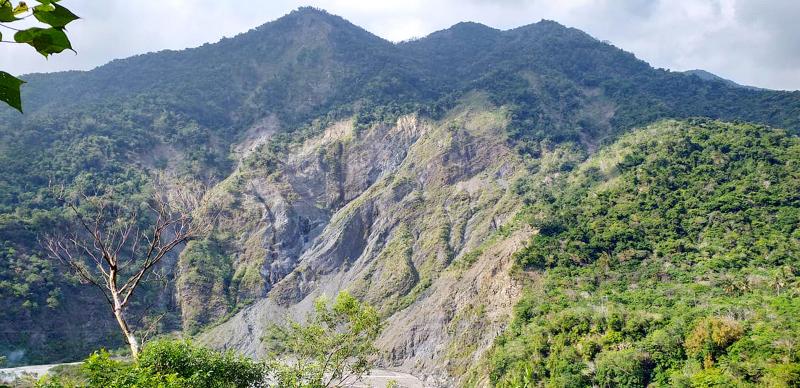
Photo: Gregory McCann
Heading back north on Provincial Highway 9, the views of radiant blue Pacific are reason enough to take a trip here. About 30 minutes south of Taimali Township (太麻里), a sign indicated Jinlong Township (金龍). Beyond the town, large mountains loomed. I turned in.
This backwater, situated at the mouth of a river, is apparently a popular rest stop for cyclists touring the east coast.
On the main road through town a brown and white sign read: Dawu-Shan Eco Education Center 2.5km. It exists! I booked a room at a small hotel a few meters away (Jinlong is a very small town), and hopped back on the scooter to find the road that leads into the interior.
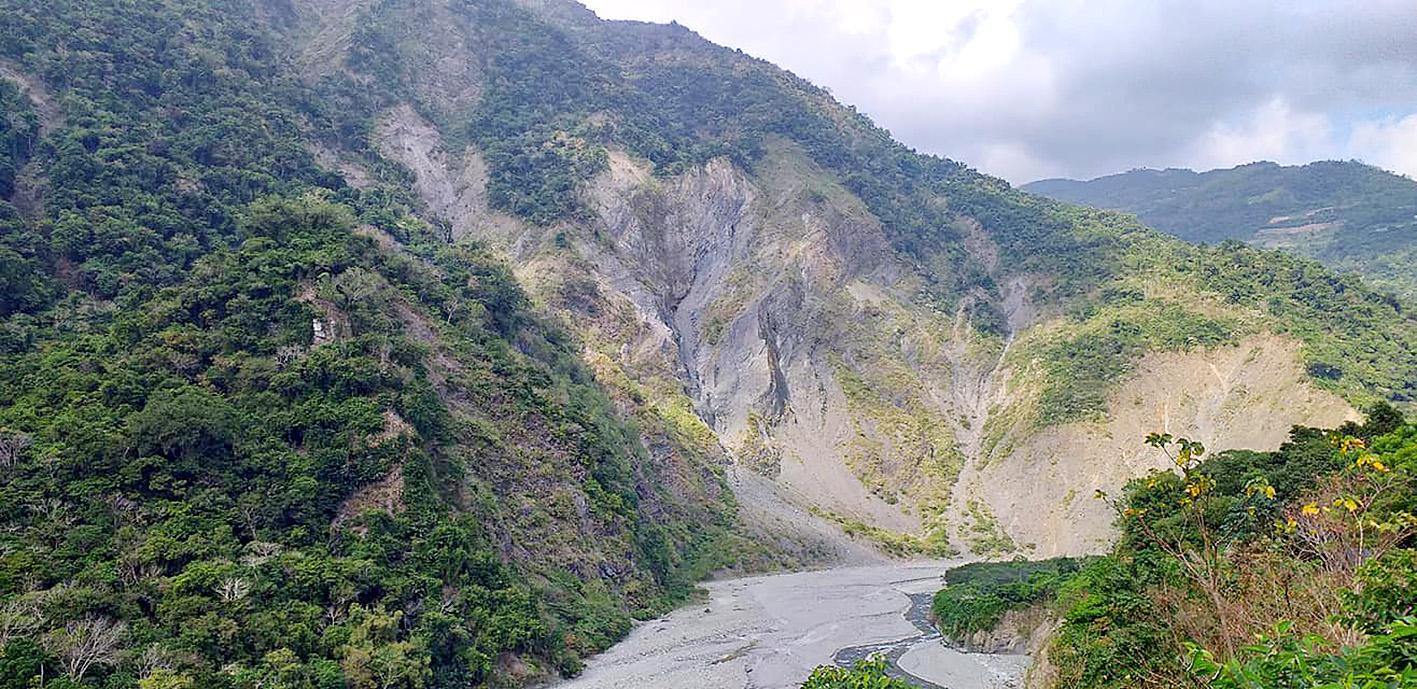
Photo: Gregory McCann
A good indication that I was on the right track murals on a whitewashed cement embankment depicting: mountain scops owl, masked palm civet, wild pig, barking deer, black bear and clouded leopard.
An ornate red bridge led to an empty but well-kept parking lot, so I parked and set off to explore the trail. The river was audible below and I found my way down an embankment and dunked my head into the clear Dawu River (大武溪).
Lots of nice forest, but still way too close to humanity. I climbed back up and found that the trail improved and there was a house in the distance. I drove up and got a sense of where the road led — deeper into the mountains and beyond the last hamlets. It was getting dark and I’d return tomorrow.
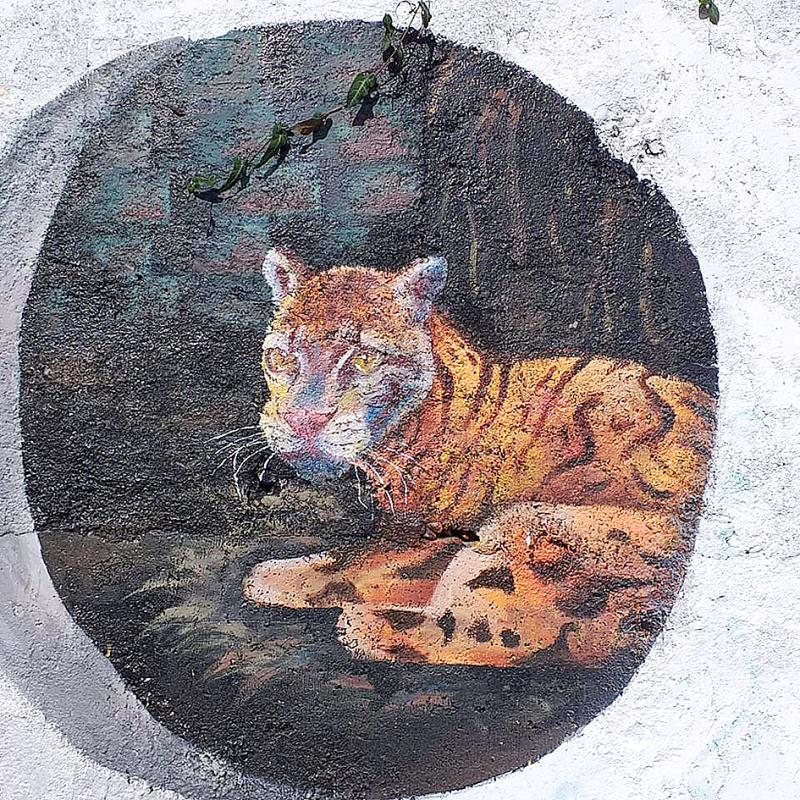
Photo: Gregory McCann
CONSERVATION LEGACY
Scientific interest in Dawu Mountain came into focus in 1987 when the idea that a remnant population of Formosan clouded leopards might persist in the area. The late American big cat conservationist Alan Rabinowitz and his still-kicking and legendary colleague George Schaller (called “GS” in Peter Matthiessen’s classic The Snow Leopard), visited then-president Lee Teng-hui (李登輝) and got the ball rolling for an investigation to begin. Apparently interviews with villagers followed, but nothing could be corroborated about its continued existence.
Taiwanese researcher Po-Jen Chiang (姜博仁) and his team, which received assistance from the big cat NGO Panthera, which was established by Rabinowitz and Schaller, spent 15 years from 1997 to 2012 thoroughly scouting out this area with camera traps and other technology. The Formosan clouded leopard was declared extinct in 2013.
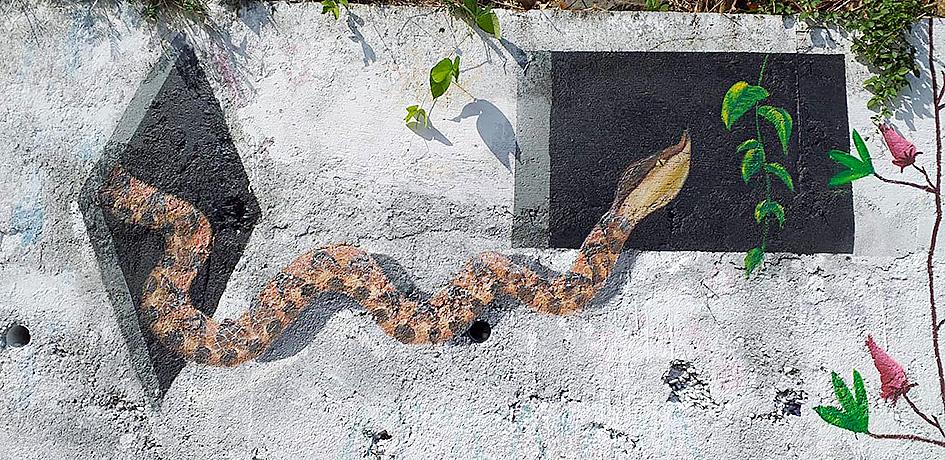
Photo: Gregory McCann
THE TRAIL
The road into Dawu Mountain becomes hillier and the houses fall away, along with the last barking of the dogs. A macaque leaps from one tree to another, and several are making noise in the thick foliage on the right side of the road. There is a sign indicating that pangolins can be found here. The views open up and gigantic mountain that appears as if it had suffered the natural wound of a volcanic eruption sparkles across the valley.
Yes, I can see why Rabinowitz, Schaller and Jiang decided to focus on Dawu in the search for the Formosan clouded leopard. The road narrows, deteriorates and then plunges steeply down. I’ll need to park, and walk.
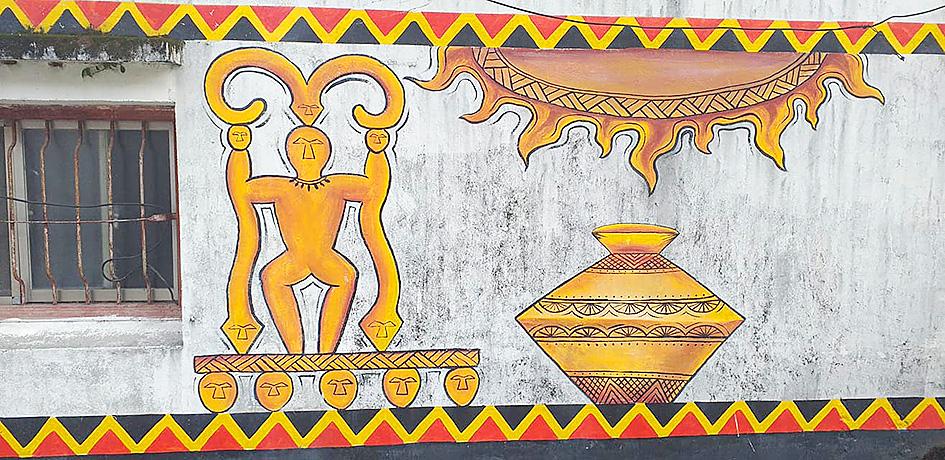
Photo: Gregory McCann
Dawu Mountain is dripping in tropical greenery, and aside from some interesting bird calls, I hear nothing but my tinnitus. I cannot find a way down to the river, and later clouds move in, and a breeze picks up. I luxuriate in the privilege of being alone in remote natural world, and after a while, head back to my scooter. I know the way, and I’ll return in the future.
Driving back, many of the homes were directed in traditional artwork, several of which depicted the venomous banded krait as well as the 100-pacer pit viper (Deinagkistrodon acutus), which many tribal groups view as spiritual snakes.
Whatever the wildlife that can be found here, a trip to Jinlong and Dawu Mountain is certainly worth the effort for travelers looking to get off the beaten path. Like the Taimali and Jhihben canyons to the north, it is highly unlikely that you will find any other people — let alone tourists — on a trek up into the valley, which will involve much more river-tracing than mountain hiking. Indeed, the feeling you are likely to come away with is that you have discovered your own private tropical paradise.

Photo: Gregory McCann

On the Chinese Internet, the country’s current predicament — slowing economic growth, a falling birthrate, a meager social safety net, increasing isolation on the world stage — is often expressed through buzzwords. There is tangping, or “lying flat,” a term used to describe the young generation of Chinese who are choosing to chill out rather than hustle in China’s high-pressure economy. There is runxue, or “run philosophy,” which refers to the determination of large numbers of people to emigrate. Recently, “revenge against society” attacks — random incidents of violence that have claimed dozens of lives — have sparked particular concern.

Some people will never forget their first meeting with Hans Breuer, because it occurred late at night on a remote mountain road, when they noticed — to quote one of them — a large German man, “down in a concrete ditch, kicking up leaves and glancing around with a curious intensity.” This writer’s first contact with the Dusseldorf native was entirely conventional, yet it led to a friendly correspondence that lasted until Breuer’s death in Taipei on Dec. 10. I’d been told he’d be an excellent person to talk to for an article I was putting together, so I telephoned him,

With raging waters moving as fast as 3 meters per second, it’s said that the Roaring Gate Channel (吼門水道) evokes the sound of a thousand troop-bound horses galloping. Situated between Penghu’s Xiyu (西嶼) and Baisha (白沙) islands, early inhabitants ranked the channel as the second most perilous waterway in the archipelago; the top was the seas around the shoals to the far north. The Roaring Gate also concealed sunken reefs, and was especially nasty when the northeasterly winds blew during the autumn and winter months. Ships heading to the archipelago’s main settlement of Magong (馬公) had to go around the west side

From an anonymous office in a New Delhi mall, matrimonial detective Bhavna Paliwal runs the rule over prospective husbands and wives — a booming industry in India, where younger generations are increasingly choosing love matches over arranged marriage. The tradition of partners being carefully selected by the two families remains hugely popular, but in a country where social customs are changing rapidly, more and more couples are making their own matches. So for some families, the first step when young lovers want to get married is not to call a priest or party planner but a sleuth like Paliwal with high-tech spy